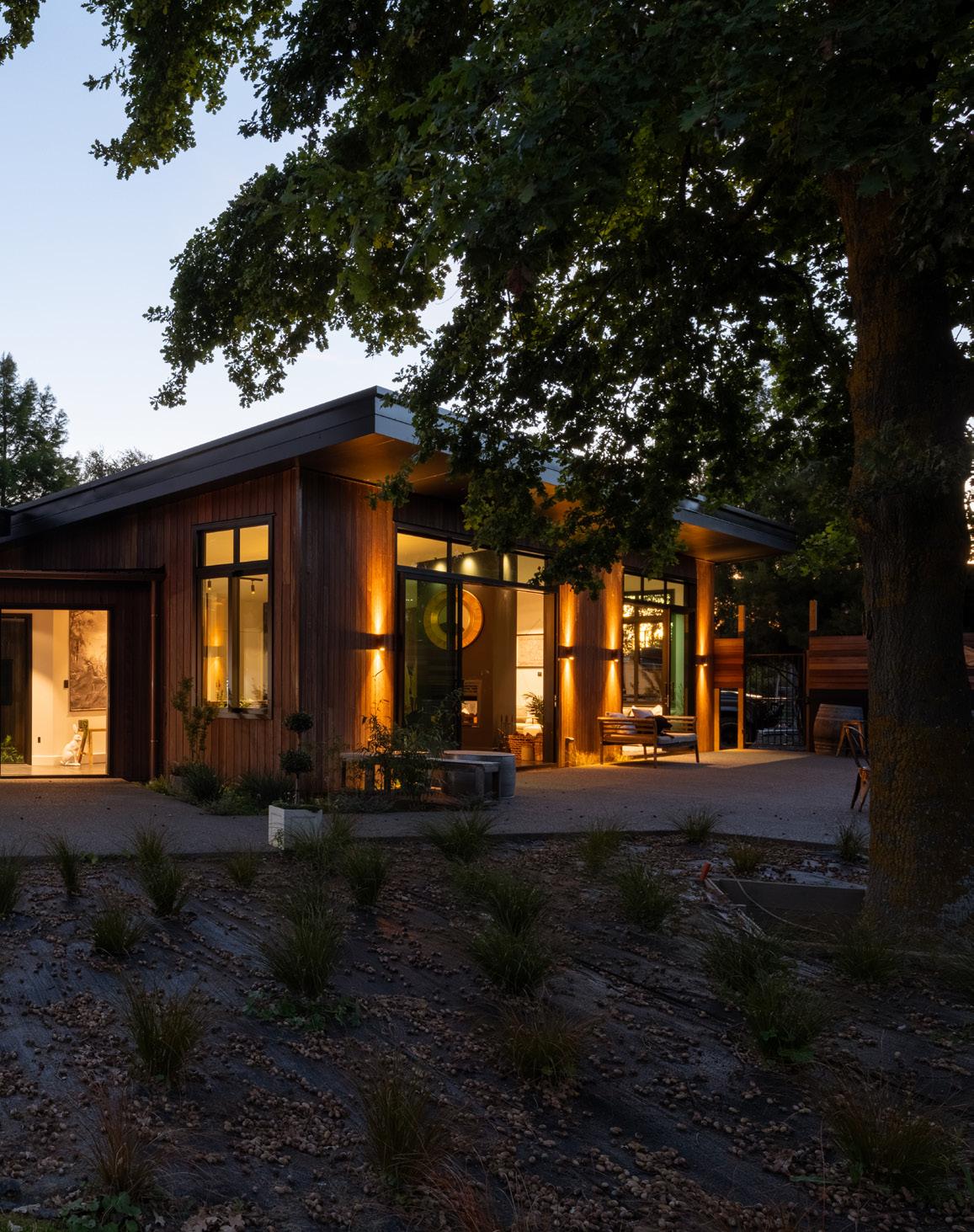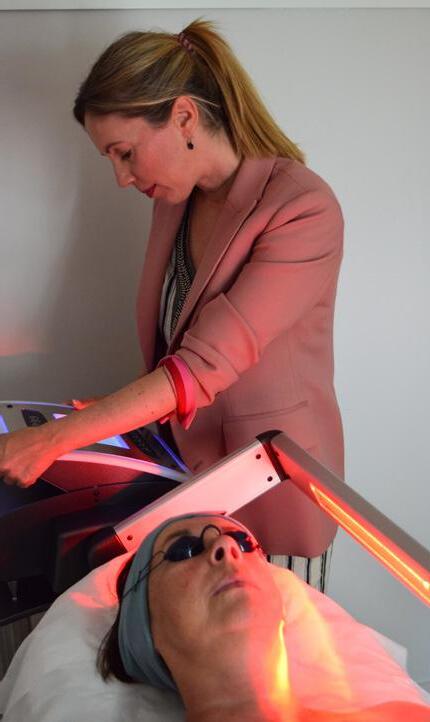
4 minute read
The heart of hospice
All is calm, the air redolent with the scent of fresh blooms brightening the nurses’ station. Staff are ready with a smile and from one of the four patient rooms drifts the sound of soft chatter. A striped cat pads past. Resident moggy Lexie is fussed over by staff and patients alike. The vibe is warm and welcoming, an oasis of calm amid the clamour of illness.
For registered nurses Dale Keenan and Juliet Keating, it is an honour to be part of a patient’s journey. Both experienced nurses, the pair work mainly in the community, caring for those who are nearing the end of their lives.
Advertisement
For Dale, who also did hospice work in Wellington, it is much more than just a job.
“I worked at the inpatient unit here and when the community role came up, I knew it was for me. It’s a privilege to work to provide care to patients and their families.
“Looking after someone at death is important, as we walk beside them on their journey. I might see them in the supermarket at the start, then at home or in here later on - we are here to support them.
“We do our best to support patients towards a good death and I feel very strongly and passionately about working with others going through their own journey.”
Juliet nods in agreement as Dale talks. She previously worked in the UK with vulnerable patients and says she always knew she would like to be involved in hospice care.
But, like Dale, she knew getting some life experience first was key.
“When I trained as a nurse I remember being taken into a hospice and it felt very special.
“People think end of life to be this frightening thing but we give them [families] the skills and confidence to keep loved ones at home.”
Dale and Juliet, like other staff at the hospice, work very much as a team. Support from others is key when it comes to their role, one that includes grief and loss. So how do they cope when it comes to losing a patient they know and care about?
“You do absorb it, “explains Juliet, “but you have to look after yourself physically and mentally. It’s part of life. We don’t say we ‘passed into’ the world so we don’t say ‘passed’, we say it for what it is.”



From their tone, it is clear both women are not just dedicated to their patients, they genuinely care about people.
The hospice cares for palliative patients and their families in the community who would prefer to stay at home. Covering the whole region means the nurses do an average of four or five home visits a day. Today the Marlborough Hospice Trust manages the provision of hospice palliative care services and they, along with the Marlborough Hospice Foundation, form Hospice Marlborough.
Hospice Marlborough’s new Chief Executive, Carole Crawford, is almost three months into her new role. For the former Nelson Marlborough Institute of Technology (NMIT) director, the role is one close to her heart.
Being able to give back and help people has been part of her hopes for the future since she first started working.
“When I was 22 years old my dad died, he was in an accident and in a coma. It was three weeks before my wedding and he was supposed to walk me down the aisle. He was only 48 years old.
“My mum was living with cancer for five years. I was pregnant with our first child and she always wanted to be a grandmother.
“Those sort of life experiences… I decided that towards the end of my career I would like to get into a similar area. I didn’t know what that would look like but it was always at the back of my mind.
Carole pauses briefly as she recalls that difficult time in her life. Losing both her parents at a young age shaped her future in many ways, she explains.
Pregnant with her first child, British-born Carole cared for her mother at home. At that point, hospices were not commonplace.
“It got to the point where I couldn’t cope; I just couldn’t do it all,” she says. “She was in a hospital where not many of her friends were around. She passed peacefully. If this [hospice] was available it would have made a big difference.”
Seeing the advertisement for the newly-created CEO role, Carole says she knew it was a job where she could make a positive difference to people’s lives.
Carole, who graduated from the University of Exeter in the UK, has also been chair of the Marlborough Smart + Connected Labour and Skills Steering Group, worked for Hone St John and the family-planning service. She and her husband arrived in Marlborough 23 years ago and love it here.
“I’ve networked in this community, it’s my community. It’s a way of giving back and I know I can really help.
“When I was at NMIT the students were at the centre of everything and we put the patients first here, and their families. It’s quite the parallel.”
There are 43 staff at Hospice Marlborough and about 200 volunteers.
“They do everything from gardening and covering reception at the hospital. We couldn’t exist without them, “explains Carole.
“The community support and people generally are very generous with their money and time.”
For Nita Croad who is a volunteer at both the Hospice Shop and at the front desk at Wairau Hospital, it is time she is happy to devote – for two very special reasons.
She has been a volunteer at the Redwoodtown shop for 10 years and her welcoming smiles has graced the front desk of the hospital for nine years.
Nita’s daughter Gillian Croad died of bowel cancer two weeks before her 39th birthday in August 2006, while husband Barry passed from cancer too, in 2011. Hospice, both in Marlborough where Nita lives, and in the UK where Gillian was based, helped with equipment and respite care.
Visiting Barry in hospital during his last weeks was key to her decision to volunteer, Nita says.
“Seeing the ladies at the desk helped, just by them being there. I knew one day I would like to do that too.
“Apart from the fact that I have the time, it’s about being here for people who may need hospice care. The shop is also vital, it generates a lot of income.
“I always say it’s the only place I pay to work, as I like to buy things,” Nita jokes.
Every dollar raised at the Hospice Shop goes to the hospice except for running costs. This year, the fundraising target is $850,000.
“Every dollar helps us provide the model of care we deliver to the community,” Carole says.
“We’re working with GPs and making sure that they, and their teams, know that if someone is diagnosed with something that is likely to be life-limiting, to loop us in earlier,” says Carole.
“This is not a building where people come to die, there is much more to hospice.”










